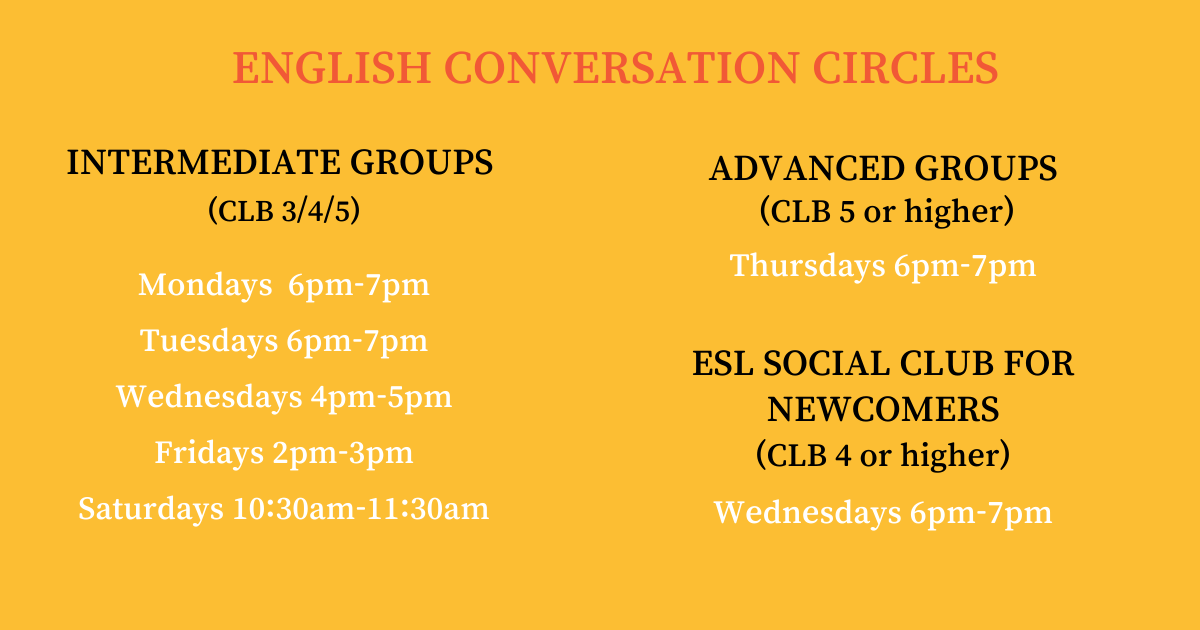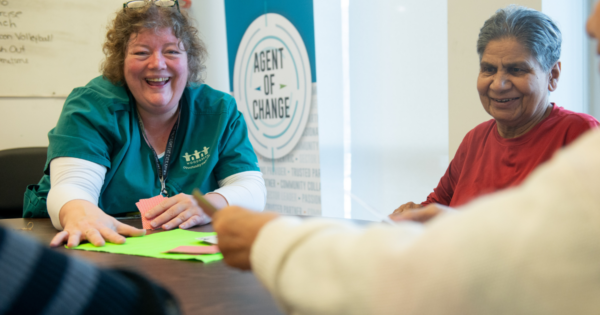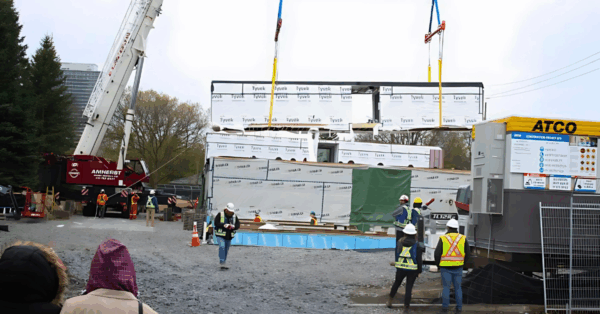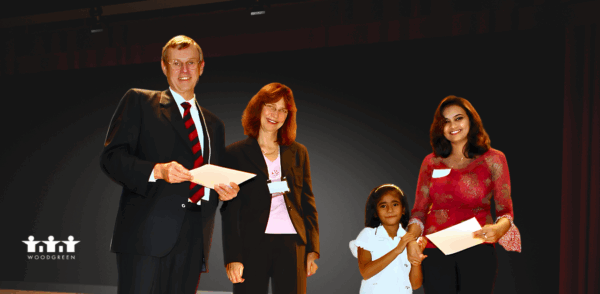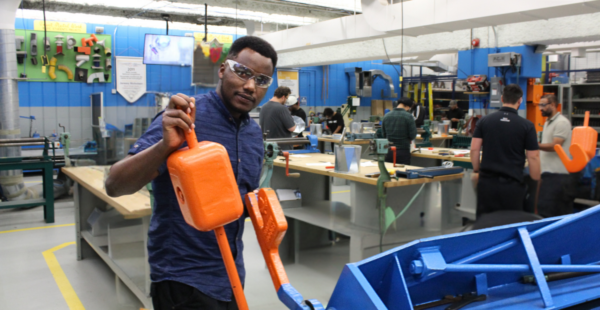Nearly every night of the week in Toronto there’s a small but intimate conversation happening that would fascinate a lot of Canadians. A dozen people from different countries, different races, different religions and different income brackets gather to talk about anything and everything. They share one goal: improving their English.
“How do you pronounce ‘Colonel’? That's a tough question I got asked recently,” explains Tim Giguere, lead volunteer and facilitator with WoodGreen’s English Conversation Circle program.
“That launched into a discussion about why English has so many silent letters.”
Giguere, who is a school psychologist, has been running a conversation circle for the last four years. He had been looking for ways to give back to his community when he found WoodGreen’s program listed on a national volunteering site. He’d helped others with literacy skills in the past, and although Giguere’s English is flawless, that’s as far as his language skills go. “I’ve really tried to learn French, so I know learning a language is not easy.”
Free to any newcomer, any status
WoodGreen’s English Conversation Circles are completely free. They take place Monday through Saturday for an hour each day, with some in the evening and others in the daytime. Like most things, the gatherings moved online over the last few years, but some circles will return to in-person sessions in April of 2023. They’re open to new Canadians, regardless of status; permanent residents, refugees, international students, work permit holders and Naturalized Citizens. It doesn’t matter how long participants have been in Canada, only that they want to improve their English skills.

Creating a ‘tiny Toronto’
In a city where nearly half of all residents were born outside of Canada, WoodGreen’s conversation groups are like a tiny Toronto. Participants come from places like Mexico, Columbia, Pakistan, India, Ukraine, Russia, Afghanistan, Syria, Brazil and China. Each of the groups has its own unique mix of characters and cultures.
“No one group is dominant,” says Giguere. “But the only common language is English, so they have to figure out a way to say what they want to say.”
Like true Torontonians, there are some topics that participants always seem eager to talk about.
“They love to talk about the TTC,” says Althea Raymond, an ESL (English as a Second Language) teacher who has been volunteering with the program for eight years.
“They want to know what people talk to each other about at the bus stop. How to make small talk. What questions you can or can’t ask someone.”

Conversations about Canadian culture
As much as the facilitators help with language, they are also conduits for Canadian culture. Raymond says the goal is to create a safe space where newcomers can build confidence, ask questions and make mistakes without judgment.
She’s been asked to explain the difference between university and college, but also, “why people are allowed to smoke marijuana on the street in Canada, but they're not allowed to drink beer.”
Raymond says the participants often grow close to one another and worry if they don’t see someone for a while. Many have built relationships outside of the conversation circle.
“They really connect and they make some of their first Canadian friendships here,” says Raymond, who echoes Giguere’s statement that the groups often represent a mix of the greater Toronto community. This diversity is something the participants often discuss.
“One lady from Brazil said that at home everyone in her daughter’s school looked the same,” says Raymond. “But in Canada, she says her daughter is able to have a Chinese friend, a Black friend, an African friend. Friends from all over. And she was just so pleased and so proud about being in Canada and being Canadian.”
‘I love volunteering.’
Giguere says he looks forward to his weekly meetings and wishes he could volunteer more often.
“I learn as much from the participants as they do about learning English,” he says, adding that one topic that everyone loves to discuss is food. But during TIFF (Toronto International Film Festival), they each shared a movie from their home country that they thought the others should watch. Many conversations revolve around Canadian terms that few participants were ever taught in school, like what is a double-double, what is a nickel or a dime, and what’s a chesterfield or a toque?
“I love volunteering,” agrees Raymond. “The participants have taught me about resilience, and that something new is not that scary.”
The volunteers say they just hope participants feel welcome and learn there is no need to apologize for what they think is their ‘bad English’, says Giguere.
“A lot of people are lacking confidence, and we try to reassure them that they’re communicating a lot better than they think they are!”
WoodGreen divides the groups based on how much English each participant knows. This ensures conversations are on the same level for all so everyone feels confident speaking and no one dominates the conversation. There are currently five groups for anyone with a CLB (Canadian Language Benchmark) of Level 3,4 or 5. There are two advanced groups for those at CLB Level 5 or higher as well as an ESL Social Club for Newcomers for anyone with CLB level 4 or higher. This last group focuses more on living in Toronto and some of the challenges newcomers might face with settlement.
To learn more about WoodGreen’s English Language Services visit our website.
To learn more about volunteering as a conversation facilitator visit here.
